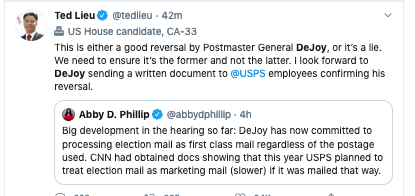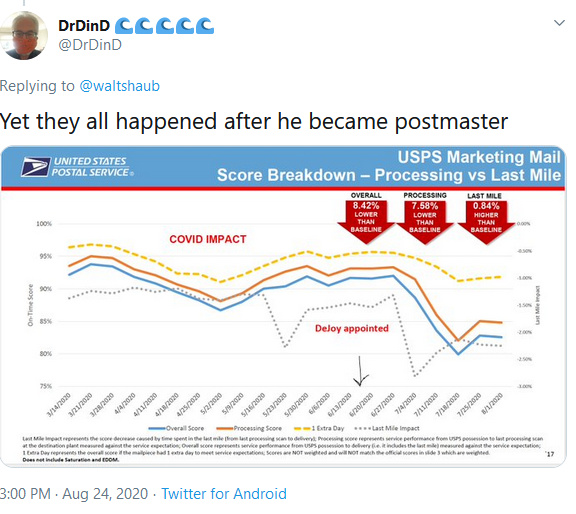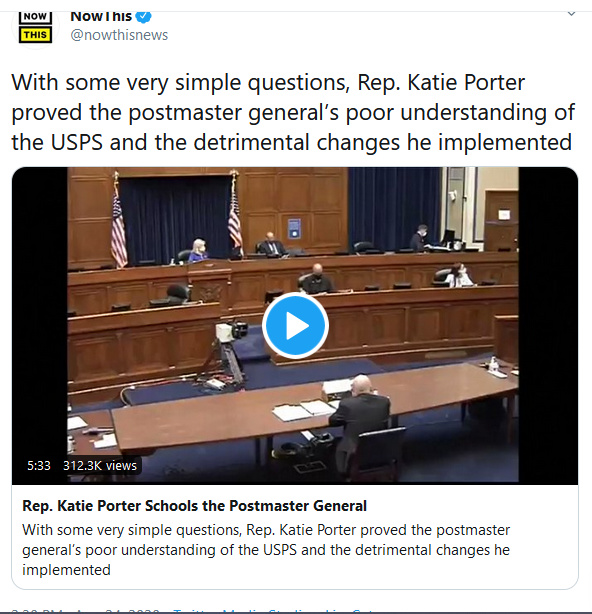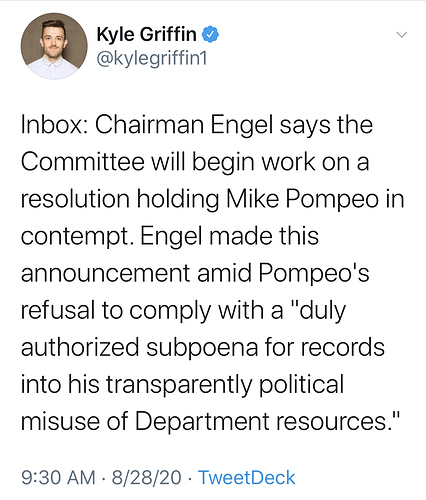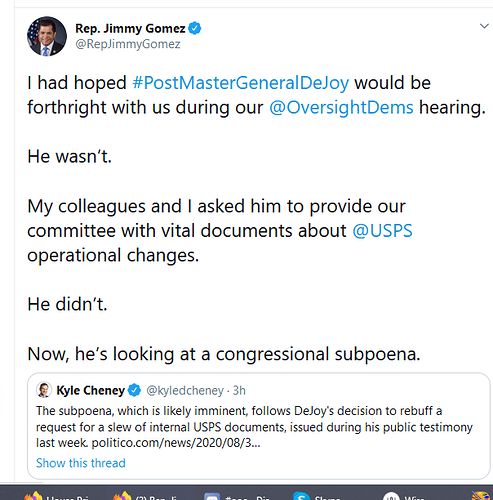NBC confirms, Senate Intel committee made a referral to the justice department in 2019 for Donald Trump Jr., Jared Kushner, Steve Bannon, Erik Prince and Sam Clovis.
Senate report finds Manafort passed campaign data to Russian intelligence officer
The Senate Intelligence Committee on Tuesday released the fifth and final volume of its report on Russian interference in the 2016 election, which details “counterintelligence threats and vulnerabilities.”
Why it matters: The bipartisan, 996-page report goes further than the Mueller report in showing the extent of Russia’s connections to members of the Trump campaign, and how the Kremlin was able to take advantage of the transition team’s inexperience to gain access to sensitive information.
Highlights
Paul Manafort: The report found that the former Trump campaign chairman began working on influence operations for the Russian oligarch Oleg Deripaska and other pro-Russia Ukrainian oligarchs in 2004.
- Manafort hired and worked closely with Russian national Konstantin Kilimnik, whom the committee definitively calls a “Russian intelligence officer” that served as a liaison between him and Deripaska.
- On numerous occasions, Manafort sought to pass sensitive internal polling data and campaign strategy to Kilimnik. The committee was unable to determine why or what Kilimnik did with that information, in part due to the pair’s use of encrypted messaging apps.
- The committee did, however, obtain “some information” suggesting Kilimnik “may have been connected” to Russia’s hacking and leaking of Democratic emails. The section detailing these findings is largely redacted.
- The bottom line: “Taken as a whole, Manafort’s high level access and willingness to share information with individuals closely affiliated with the Russian intelligence services, particularly Kilimnik and associates of Oleg Deripaska, represented a grave counterintelligence threat,” the committee wrote.
Roger Stone/WikiLeaks: The committee found that then-candidate Trump and senior campaign officials attempted to obtain advance information about WikiLeaks’ release of damaging emails from Roger Stone, who they believed had inside information.
- It also assessed that Trump spoke with Stone about WikiLeaks on “multiple occasions,” despite the fact that the president said he did not recall doing so in written answers to special counsel Robert Mueller.
- In July 2016, Stone drafted tweets for Trump — at his request — that “attacked Clinton for her adversarial posture toward Russia and mentioned a new peace deal with Putin.”
- The committee also found “significant evidence” to suggest that WikiLeaks was “knowingly collaborating with Russian government officials.” WikiLeaks founder Julian Assange has long denied that the source of the hacked emails was Russia.
2016 Trump Tower meeting: The committee found that Donald Trump Jr. expected to receive “derogatory information” that would benefit the campaign from a person he knew was connected to the Russian government, but that no information was ultimately transmitted.
- Two participants at the meeting, Natalia Veselnitskaya and Rinat Akhmetshin, had far more “extensive and concerning” ties to the the Russian government, including to Russian intelligence, than publicly known.
Michael Cohen/Russia business deal: The report found that by the end of 2015, Trump’s former personal lawyer had “reached out to the Kremlin directly to solicit the Russian government’s assistance” about building a Trump Tower in Moscow.
- “Cohen kept Trump updated on the progress of the deal. While these negotiations were ongoing, Trump made positive public comments about Putin in connection with his presidential campaign.” The report found Cohen and Felix Sater, a longtime business associate of Trump, “sought to leverage Trump’s comments, and subsequent comments about Trump by Putin, to advance the deal.”
- Cohen made contact in January 2016 with a Russian aide to Putin spokesman Dmitri Peskov and reported to Trump that he had done so. Attempts to advance the deal stopped in the summer of 2016.
Trump transition: Russia “took advantage” of members of the Trump transition team’s “relative inexperience in government, opposition to Obama administration policies, and Trump’s desire to deepen ties with Russia to pursue unofficial channels through which Russia could conduct diplomacy,” the committee determined.
- The transition team “repeatedly took actions that had the potential, and sometimes the effect,” of interfering with the Obama administration’s diplomatic efforts, including former national security adviser Michael Flynn’s conversations with the former Russian ambassador.
FBI investigation: The report concluded that “certain FBI procedures and actions in response to the Russian threat to the 2016 elections were flawed,” specifically with respect to the bureau’s interactions with the DNC about the email hacks and its treatment of the Steele Dossier.
Methodology: Together, the five volumes of the report represent “three years of investigative activity, hundreds of witness interviews and engagements, millions of pages of document review, and open and closed hearings.”
- The committee conducted “follow-up interviews” with Michael Cohen, Jared Kushner, Donald Trump Jr., John Podesta, and State Department official Jonathan Winer — which were necessary after the committee “developed additional information since the initial interview that required clarification from the witnesses.”
- The committee said it was limited in some aspects of its investigation by assertions of executive privilege, including by members of the Trump transition team. “The committee was surprised by these assertions because they were made inconsistently and because they have no basis in law,” the report claims.
What they’re saying:
- Senate Intelligence acting chairman Marco Rubio (R-Fla.): “We can say, without any hesitation, that the Committee found absolutely no evidence that then-candidate Donald Trump or his campaign colluded with the Russian government to meddle in the 2016 election. …
- Senate Intelligence ranking member Mark Warner (D-Va.) : “At nearly 1,000 pages, Volume 5 stands as the most comprehensive examination of ties between Russia and the 2016 Trump campaign to date – a breathtaking level of contacts between Trump officials and Russian government operatives that is a very real counterintelligence threat to our elections. … This cannot happen again."
Watch: Senate Hearing on U.S. Postal Service
Postmaster General DeJoy testified before the Senate Homeland Security & Governmental Affairs Committee on the U.S. Postal Service operations during COVID-19 pandemic and the 2020 election.
That would be GREAT if the first class mail (ballots are first class mail) will be processed as such, as DeJoy is indicating, but some are skeptical as to whether this will really happen.
Louis DeJoy, the embattled postmaster general whose cost-cutting and operational changes have prompted widespread concern about mail-in voting, said on Friday he was “extremely highly confident” the Postal Service could facilitate the largest vote-by-mail program in American history and called suggestions that he might intentionally slow ballot delivery to help President Trump “outrageous.”
Testifying before Congress for the first time amid a political firestorm, Mr. DeJoy, a major donor to Mr. Trump, defended many of the changes put in place as necessary to help the Postal Service get its financial house in order. He acknowledged that the moves have slowed some mail delivery and reiterated that he would suspend his cost-cutting measures until after the election.
“There has been no changes to any policies with regard to election mail,” Mr. DeJoy said, adding, “The Postal Service is fully capable and committed to delivering the nation’s election mail fully and on time.”
Under questioning from Democrats, however, he refused to unwind other steps, like removing hundreds of blue mailboxes and mail sorting machines, that he said were initiated by his predecessors in response to a steady decline in mail volume. He denied knowledge of the machine removal when it first began, telling senators it was “not a critical issue within the Postal Service.”
And he was unable to offer many specifics about how the Postal Service would ensure on-time delivery of ballots, telling Senator Maggie Hassan, Democrat of New Hampshire, that he would be unable to provide a detailed plan by Sunday because it was still being drafted.
Mr. DeJoy said he would continue the agency’s practice of prioritizing election mail, regardless of what postage is used, and “deploy processes and procedures that advance any election mail, in some cases ahead of first-class mail.”
Press Release: New Postal Service Documents Show Nationwide Delays Far Worse Than Postal Service Has Acknowledged
Aug 22, 2020
Internal “PMG Briefing” Shows Alarming Delays Across the Board— First-Class, Marketing, Periodicals, and Priority Mail
Washington, D.C. (Aug. 22, 2020)—Today, Rep. Carolyn B. Maloney, the Chairwoman of the Committee on Oversight and Reform, released new internal Postal Service documentswarning Postmaster General Louis DeJoy about steep declines and increasing delays nationwide over the last two months as a result of his drastic operational and organizational changes.
“After being confronted on Friday with first-hand reports of delays across the country, the Postmaster General finally acknowledged a ‘dip’ in service, but he has never publicly disclosed the full extent of the alarming nationwide delays caused by his actions and described in these new documents,” said Chairwoman Maloney. “To those who still claim there are ‘no delays’ and that these reports are just ‘conspiracy theories,’ I hope this new data causes them to re-think their position and support our urgent legislation today. We have all seen the headlines from every corner of our country, we have read the stories and seen pictures, we have heard directly from our constituents, and these new documents show that the delays are far worse than we were told.”
The new documents being released by the Committee today are part of a “PMG Briefing”—a presentation prepared directly for the Postmaster General last week, on August 12, 2020. They provide a detailed assessment of service performance trends over the past year.
According to these documents, there has been a significant drop in service standards across the board since the beginning of July—including in First-Class, Marketing, Periodicals, and Priority Mail.
The Postmaster General and his top aides have never admitted to the sweeping delays and reductions in service caused by his actions and detailed in these new documents.
Instead, the Postmaster General acknowledged in testimony on Friday before the Senate only: “We all feel bad about what the dip in the level of service has been.” DeJoy and Postal Service leadership have also downplayed the delays as “temporary service impacts” and “unintended consequences.”
On Friday, the top Republican on the Oversight Committee, Rep. James Comer, testified repeatedly before the House Rules Committee that there are “no delays” with the mail and “no data” proving the delays are real.
Two days earlier, Comer and House Republican leaders Kevin McCarthy and Steve Scalise sent a letter to Chairwoman Maloney and Speaker Nancy Pelosi arguing that nationwide reports of delays are nothing but “conspiracy theories” being “manufactured” by Democrats to “undermine President Trump” and support “an unnecessary bailout plan.”
Click here to read the new documents released by the Committee today.
Watch: Full Committee Hearing on “Protecting the Timely Delivery of Mail, Medicine, and Mail-in Ballots”
With postal workers rebelling against General DeJoy & his #QAnonsense Storm Troopers by reinstalling sorting machines, we have reached “Brazil” levels of dystopia, what with the rebel repair workers sticking it to the man by fixing things.
This truly is the strangest timeline.

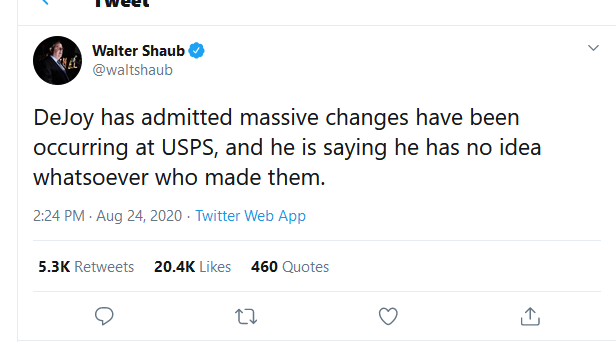
Alexander Vindman’s brother files complaint alleging whistleblower retaliation
Lt. Col. Yevgeny Vindman, whose brother, Alexander, served as a key witness during President Trump’s impeachment, filed a complaint last week with the Pentagon’s inspector general suggesting he was retaliated against for disclosing potential ethics violations by senior White House officials, his lawyers confirmed on Wednesday.
The state of play: Vindman, like his brother, is a decorated Iraq War veteran and served at the National Security Council as a senior lawyer and ethics official. They were dismissed simultaneously in February, though top military leaders, including Defense Secretary Mark Esper, claim they were not politically targeted.
What happened: Details about Vindman’s complaint were first made public in a letterfrom top House Democrats, including House Oversight Chair Carolyn Maloney and House Intelligence Chair Adam Schiff, who asked the Pentagon’s internal watchdog to open an investigation into the matter.
- The Democrats say Vindman’s complaint alleges he was retaliated against for raising concerns about Trump’s 2019 phone call with Ukrainian President Volodymyr Zelensky.
- They also say the complaint alleges that he was removed from the NSC after he reported potential legal and ethical violations and allegations of sexism by national security adviser Robert O’Brien and NSC chief of staff Alex Gray.
What he’s saying: “There were allegations of sexism, violations of standards of ethical conduct for employees and violations of the Anti-Deficiency Act. … I notified my supervisors on the NSC staff and White House Counsel’s Office about each of these concerns,” Vindman wrote in a March memorandum that was attached to his complaint.
- “While any of these infractions are serious, together they form a disturbing pattern of flagrant disregard for rules.”
- “I fear that if this situation persists, personnel will depart and national security will be harmed. I request you inquire into the facts and allegations herein and take appropriate action.”
House Democrats say subpoena for Trump’s financial records meets Supreme Court’s requirements
House Oversight Chair Carolyn Maloney (D-N.Y.) on Thursday released a memo arguing that House Democrats’ subpoena for President Trump’s financial records already meets the requirements set out by the Supreme Court for Congress to obtain those documents.
The backdrop: The Supreme Court kicked House Democrats’ subpoena back to a lower court last month, ruling that neither side had put forward a compelling analysis of how to balance congressional subpoenas with the separation of powers.
- “The House’s approach would leave essentially no limits on the congressional power to subpoena the President’s personal records. A limitless subpoena power could transform the established practice of the political branches and allow Congress to aggrandize itself at the President’s expense,” Chief Justice John Roberts wrote in the Supreme Court’s ruling.
Worth noting: The subpoena doesn’t target Trump directly, but is instead addressed to Mazars USA, the president’s longtime accounting firm.
What they’re saying: The memo from House Democrats argues that Trump’s “non-public financial information is the best evidence to help Congress develop and enact legislation to promote transparency, enhance public confidence in the integrity of elected officials including the President, and prevent grave conflict of interests for this and any future presidents.”
- It says that the subpoena will move forward the House’s “investigations into presidential ethics and conflicts of interest, presidential financial disclosures, and presidential adherence to constitutional safeguards to prevent corruption and undue influence, in aid of Congress’s consideration of presidential ethics reforms.”
This is bat 

D.C. Circuit panel kills House subpoena power
A divided federal appeals court panel dealt a severe blow to the U.S. House of Representatives’ investigative power Monday, ruling that the House can’t go to court to enforce subpoenas because there is no statute giving that chamber the authority to do so.
The 2-1 ruling marked the second time a D.C. Circuit Court of Appeals panel voided a subpoena the House issued last year to Donald McGahn demanding the former White House counsel testify about his dealings with President Donald Trump related to the investigation into alleged ties between the Trump campaign and Russia.
The panel said Congress is free to pass a law making House subpoenas enforceable, but the courts can’t create a legal mechanism to mandate compliance in the meantime. The House is likely to ask the full bench of the appeals court to take up the question.
The ruling says that Congress cannot use the courts to enforce subpoenas because there isn’t a law allowing Congress to use the courts to enforce subpoenas. The ruling suggests that Congress must first pass a law allowing them to enforce subpoenas. My guess is that bill would end up in McConnell’s graveyard, just like every other bill the House has passed this Congress.
Unsurprisingly, Postmaster General Louis DeJoy joins the LONG list of Trump Regime officials to ignore deadlines set by congress or the courts.
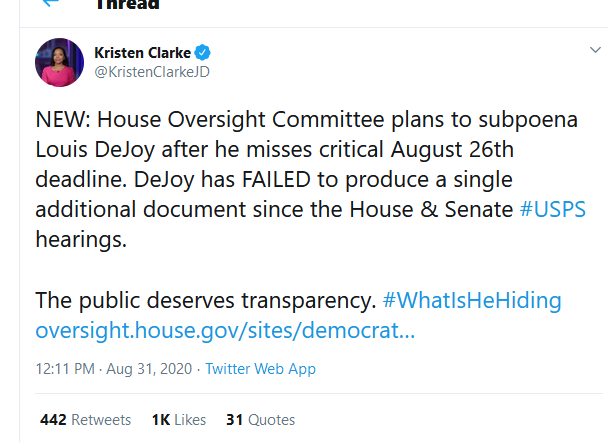
Head Of USPS Board Of Governors Is Also Director Of Mitch McConnell Super PAC
A new corporate filing Monday has revealed that the chairman of the U.S. Postal Service Board of Governors is also listed as a director of Senate Majority Leader Mitch McConnell’s $130 million super PAC, the Senate Leadership Fund.
The revelation about Chairman Robert “Mike” Duncan comes as Democrats are accusing President Donald Trump, the postmaster general and Republicans of sabotaging the Postal Service in an attempt to suppress mail-in voting, supposedly to tip the election in Trump’s favor. If that doesn’t work, critics say, Trump will point to any ballot delivery problems to challenge election result in the event of his loss.
Duncan previously served as general counsel and then chair of the Republican National Committee from 2002 to 2009, when the committee and its state counterparts supervised an unprecedented escalation of voter disenfranchisement efforts in swing states. One of the tactics was manipulating mail-in votes.
Duncan was also listed earlier this year as a director of American Crossroads, a super PAC that’s backing Trump in the 2020 election, according to CNBC.
Duncan, from Republican McConnell’s home state of Kentucky, was handpicked for his role by Trump. His board of governors in turn named Louis DeJoy, a prominent contributor to the Trump campaign, as postmaster general in June.
Most members of the Postal Service’s board of governors have numerous ties to the Republican Party as well as to Trump’s associates and administration, CNBC has reported.
Since he was named postmaster general, DeJoy has been dismantling Postal Service processes, causing major delivery delays. Hundreds of mail-sorting machines and letter collection boxes in several states have been disabled or taken out. DeJoy also announced a halt to overtime pay for letter carriers and a new limit on hours when mail can be delivered.
Amid the cutbacks, the USPS sent a letter to 46 states warning that voters could be disenfranchised because their mail-in ballots may not be delivered in time to meet deadlines.
Trump has all but admitted he is blocking a desperately needed infusion of funds to the cash-strapped Postal Service, knowing it will hamstring voting by mail.
The president has already declared, without any evidence, that the Nov. 3 election will be the “most corrupt” in U.S. history because of the anticipated wide use of mail-in ballots as voters try to avoid the risk of contracting COVID-19. Trump and first lady Melania Trump, however, voted by mail this month in the Florida primary.
USPS Board Chairman Revealed as Director of Mitch McConnell, Trump-Linked Super PACs
5 out of 6 of the board members have financial ties to the GOP & Trump regime. Duncan is also listed as a director of a Republican Super PAC called American Crossroads that’s supporting Trump in this election.
Here is the CNBC review the above article references:
GOP and Trump ties run deep on the U.S. Postal Service’s board of governors
Watch: Treasury Secretary Steven Mnuchin Testifies Before Coronavirus Crisis Subcommittee
Treasury Secretary Steven Mnuchin testifies before the Coronavirus Crisis Subcommittee on the state of the economy in the wake of the coronavirus pandemic.
House panel opens probe of White House trade advisor Navarro after abrupt cancellation of ventilator contract
A House Oversight subcommittee has opened a probe of all federal contracts negotiated by White House trade advisor Peter Navarro after the Trump administration abruptly canceled the bulk of a $646 million ventilator contract with Royal Philips, Rep. Raja Krishnamoorthi, D-Ill., told CNBC on Monday.
Justice Department hands over final Mueller investigation interviews to CNN
CNN received on Tuesday night what appears to be the last several hundred pages of witness interview records that the Justice Department is releasing from the Mueller investigation, part of what’s become an illuminating monthly disclosure of what witnesses told investigators about Russian election interference and the 2016 campaign.
This is the 10th time CNN has gotten documents like these from the Justice Department regarding the Mueller investigation as part of a 2019 lawsuit in conjunction with BuzzFeed News.
The previous releases have fleshed out details that Mueller summarized in his final report regarding President Donald Trump and his campaign’s actions. They often help explain what investigators learned about the Trump campaign in 2016 and Trump’s behavior then and after.
Follow up from buzzfeed
Key Takeaways:
- The documents contain the first extended view into what Paul Manafort told Mueller’s office about the political operative Roger Stone and what Trump knew about what Stone was up to.
- An hour before Trump officially fired James Comey as FBI director on May 9, 2017, an FBI agent told Mueller’s office, the White House asked for Comey’s contact info. When the FBI inquired if they needed classified or unclassified email, a White House representative replied, “it doesn’t matter, just give us his email address.”
- “Russian President Vladimir Putin has ‘bit off more than he can chew’ in his government’s efforts to interfere in the U.S. election,” a witness, whose name is redacted, stated.
- One witness said the Trump campaign had almost no fundraising structure and as late as May 2016 was “dormant or non-existent.” The campaign seemed to have few controls, the witness said, and it was unclear whether anyone was checking to ensure that non-US citizens weren’t donating to the campaign.
- Redactions to the interview with Timothy Barrett, the former spokesperson for the Office of Director of National Intelligence, indicate that one investigation is still ongoing.
Re: Final Senate Report on 2016 election attack
The Trump-Alfa Bank Server Mystery Resurfaces
The recent release of the final volume of the Senate Intelligence Committee report on Russian 2016 election interference and twonew lawsuits by Russia’s Alfa Bank have brought back into the spotlight the puzzling lack of an explanation for the mysterious communications between the bank and the Trump Organization during the last presidential campaign.
It has been almost four years since a group of computer scientists disclosed, on the basis of DNS (Domain Name System) logs, that two internet servers belonging to Alfa Bank had looked up the address of the Trump Organization server 2,820 times between May and September 2016. Yet the long-awaited Senate report provides only this paltry, ambiguous conclusion:
“Based on the FBI’s assessment, the Committee did not find the DNS activity reflected the existence of covert communication between Alfa Bank and Trump Organization personnel. However, the Committee also could not positively determine an intent or purpose that would explain the unusual activity.”
As stated on page 24 of the Senate report, the committee was not able to see the underlying records that the FBI used in its briefings to members. So, although committee members have high-level security clearances, they appear to remain in the dark about the reasons for the server communications. Was the committee told what kind of technical diligence the FBI carried out, or whether the FBI used the talent of cyber experts such as those at Carnegie Mellon University, the CIA and NSA?
Amazingly, the committee may have interviewed only one source–Jae Cho, the IT director for the Trump Organization, who “did not recall conducting a system-wide review of the Trump Organization network to determine if there were any connections from the Trump Organization side with any of the Alfa Bank servers.” According to the report, Cho “inferred” that Alfa Bank’s servers were configured in a way that they could not have been used to transmit emails to the Trump server. But it was not just a question of emails. Writing in the New Yorker in 2018, Dexter Filkins noted that computer scientists who examined the data theorized that the look-ups could have represented other forms of communication, such as data transfers or a technique called foldering (a digital form of “dead dropping”).
This might just be political creepypasta  Posting for the mystery
Posting for the mystery
Press Release : Oversight Committee Leaders Refer Reports of Multiple Hatch Act Violations During GOP Convention for Investigation
Sep 3, 2020
Washington, D.C. (Sept. 3, 2020)— Today, Rep. Carolyn B. Maloney, the Chairwoman of the Committee on Oversight and Reform, Rep. Stephen F. Lynch, the Chairman of the Subcommittee on National Security, Rep. Gerald E. Connolly, the Chairman of the Subcommittee on Government Operations, and Committee Member Congresswoman Stacey Plaskett sent a letter asking the independent Office of Special Counsel (OSC) to investigate reports of multiple, repeated violations of the Hatch Act by the Trump Administration during the Republican National Convention last week.
“Throughout the Convention, Administration officials repeatedly used their official positions and the White House itself to bolster President Trump’s reelection campaign,” the Members wrote. “We are alarmed that President Trump and some senior Administration officials are actively undermining compliance with—and respect for—the law.”
Numerous Administration officials used their official positions and government property and resources for partisan political purposes during the Convention, including:
Video of a pardon and naturalizationceremony with Acting Secretary of Homeland Security Chad Wolf and employees of the U.S. Citizenship and Immigration Services.
A convention speech by Secretary of State Michael Pompeo while he was on official travel abroad.
Multiple segments filmed on federal property, including President Trump speaking with former hostages and people impacted by coronavirus.
A segment in which Department of Housing and Urban Development Regional Administrator Lynne M. Patton interviewed New York City tenants who later explained they were not aware that they would be used at the Convention.
Vice President Mike Pence’s filmedsegment and Convention keynote address, raising serious questions about the use of White House employees and resources and U.S. National Park Service’s role in coordinating and executing Convention programming.
“We are particularly concerned with the consequences of White House actions on career employees who may have felt pressured to help organize and put on these events, potentially subjecting them to legal jeopardy,’ the Members added. “Career employees have faced severe consequences for behavior far less egregious than what the country witnessed last week.”
President Trump reportedly“enjoyed the frustration and anger” in response to holding Convention events on the White House grounds and “relished the fact” that he could not be stopped, according to President Trump’s aides. He reportedly “joked he would excuse anyone found to be violating the act on his behalf.”
White House Chief of Staff Mark Meadows reportedly stated: “Nobody outside of the Beltway really cares,” and another Administration official explained, “What are the consequences? No one gets punished.”
“As the Committee of jurisdiction over the Hatch Act, we urge you to investigate and publicly report whether any of the actions taken by Administration officials during the Convention violated the law,” the Members concluded.
The Members requested a response to today’s letter by September 17, 2020.
Click here to read today’s letter.
